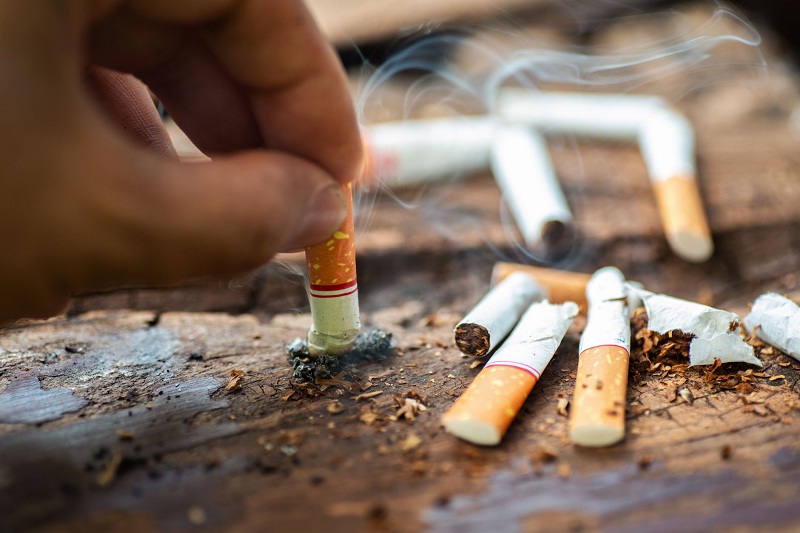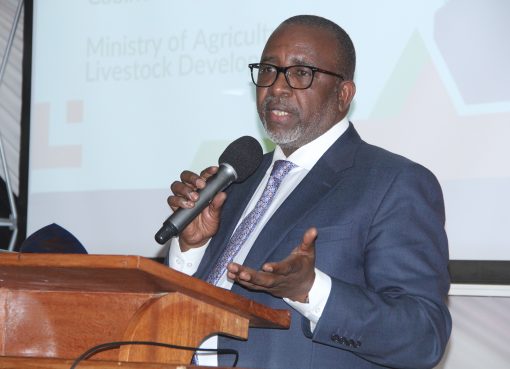A World Health Organization (WHO) report has revealed that at least 8 million lives are lost annually due to production and processing of Tobacco related products.
The report further revealed that the tobacco industry was to blame for the destruction of 600 million trees, 200,000 hectares of land, 22 billion tonnes of water and 84 million tonnes of CO2.
The report paints a grim picture of how the industry contributed to damages both to the environment and human health, calling for steps to make the industry more accountable to avert further destruction.
The majority of tobacco is grown in low-and-middle-income countries, where water and farmland are often desperately needed to produce food for the region. Instead, they are being used to grow deadly tobacco plants, while more and more land is being cleared of forests.
In a statement the WHO report titled “Tobacco: Poisoning our planet” highlights that the industry’s carbon footprint from production, processing and transporting tobacco is equivalent to one-fifth of the CO2 produced by the commercial airline industry each year, further contributing to global warming.
Dr. Ruediger Krech, Director of Health Promotion at WHO said that Tobacco products are the most littered item on the planet, containing over 7,000 toxic chemicals, which leech into our environment when discarded.
“Roughly 4.5 trillion cigarette filters pollute our oceans, rivers, city sidewalks, parks, soil and beaches every year,” Dr. Krech said.
Products like cigarettes, smokeless tobacco and e-cigarettes also add to the build-up of plastic pollution. Cigarette filters contain microplastics and make up the second-highest form of plastic pollution worldwide.
Despite tobacco industry marketing, there is no evidence that filters have any proven health benefits and WHO calls on policy-makers to treat cigarette filters, as what they are, single use plastics, and consider banning cigarette filters to protect public health and the environment.
Meanwhile WHO has also recognized a Kenyan Teacher and a Tobacco control advocate Mr Joel Shunza Gitali as a winner of this year’s World No Tobacco Day Award.
Gitali, who is also chairman of the Kenya Tobacco Control Alliance, was selected from hundreds of nominations from the 194 WHO member states.
Every year, WHO recognizes individuals or organizations in each of the six WHO Regions for their accomplishments in the area of tobacco control, this recognition takes the form of WHO Director-General Special Recognition Award and World No Tobacco Day (WNTD) Awards.
Gitali said: “It made me feel energized. I give credit to members of civil society in Kenya. They have visited all corners of the country fighting tobacco use. They also came in strongly to support my nomination. This is a sign of teamwork and cooperation.”
Gitali, who is aged 56, teaches Kiswahili at St Stephen Bujwang’a, a day secondary school in Busia and said that tobacco control is so important because it promotes health and enables people to change their habits and become healthier and protects passive smokers.
“When you look at tobacco growing areas, they are the poorest. Tobacco brings little income which the poor use to pay for the treatment of diseases they develop from handling tobacco leaves. Tobacco Growing areas suffer food insecurity. It’s a gateway to drug abuse,” Gitali said.
According to Kenya’s ministry of Health’s STEP wise Survey for Non-Communicable Diseases risk factors, tobacco use is the main preventable cause of death in Kenya and directly leads to the deaths of 9,000 Kenyans every year, and leaves thousands of others severely sick and disabled, awaiting death.
According to WHO, the costs of cleaning up littered tobacco products fall on taxpayers, rather than the industry creating the problem.
Countries like France and Spain and cities like San Francisco have taken a stand and following the polluter pays principle, has successfully implemented the “extended producer responsibility legislation” which makes the tobacco industry responsible for clearing up the pollution it creates.
WHO urges countries and cities to follow this example, as well as give support to tobacco farmers to switch to sustainable crops, implement strong tobacco taxes that could also include an environmental tax and offer support services to help people quit tobacco.
This year’s theme is “Protect the Environment “
By Wangari Ndirangu





